Transforming Lives
When it comes to civic involvement, Burundian women represent an untapped resource at a time when the country needs improved leadership at all levels of government and civil society. To fill this void, in 2009, USAID stepped forward to train more than 170 women leaders in Burundi, including parliamentarians and representatives of civil society.
Coffee accounts for roughly 80 percent of Burundi's export earnings as nearly 800,000 rural families make their living from the crop. Most of Burundi's coffee washing stations process coffee cherry without the necessary environmental controls to receive specialty certifications like Utz, Starbucks, and Rainforest Alliance. Implementing the environmental controls to attain this level of certification is important for environmental stewardship. It is equally crucial for the farmers. Certification allows their coffee to access international markets and better prices.
When Yvonne Karenzo lost her husband in 2003, she was forced to engage in unsafe sex for money even though she knew she was already HIV positive. Ostracized from her community, a jobless Karenzo was without the necessary resources to support or educate her two children.
Today, Karenzo has enough money for her family’s subsistence and even plans to save for a house as a result of USAID/Burundi funding for an association of people living with HIV/AIDS.
My name is Geneviève Ndagijimana. I am 34 years old and live with my husband, our four children and my late brother's two children in Muzinda, a small town near Burundi's capital Bujumbura. Muzinda is a flat open plain that allows us to grow the rice that is our staple food.
I always encourage people to use their mosquito nets because mosquitoes have no mercy-- they kill. I have lost family and have suffered a lot from the bugs. But now my family and I are sleeping safe and sound and I also want others to sleep safely.
In Benin, more than 75 percent of women are victims of violence, and 44 percent are sexually abused. Since 2007, USAID has helped to not only promote greater recognition and acceptance of women's rights in Benin but also get more women victims of violence to seek help from the Benin Government's Social Service Centers and the justice system. From November 2007 to September 2010, the U.S. Government has assissted in 2,782 cases of physical and sexual violence of which 996 reached the Courts of First Instance. This is nearly seven times the number planned for the life of the project, as it is very difficult for Beninese women to press charges against the men who abused them.
Diane Sagbohan is one of six women among the 265 trained spray operators who volunteered to participate in the first insecticide residential spray (IRS) campaign in Benin. Sagbohan is native of Seme Kpodji, a community well-known for suffering from high rates of malaria transmission and deadly illnesses. Seme Kpodji is one of the four communities in Benin selected for insecticide spray operations.
Kindjissi Houndjah recalled the day when she told her daughter Hainou she had to leave home. Kindjissi’s cousin in the city offered to take care of Hainou and send her to school. Kinjissi was sad, but relieved that Hainou would be well fed and go to school. In Benin, this is not uncommon: poor, rural families often send daughters into homes of a wealthier urban family.
Maria José Inés has seen many patients with malaria over the years. Recently, she is seeing something different.
Getting a mosquito net into the hands of a mother in Angola involves numerous steps: the net needs to be manufactured, packaged, shipped, cleared through customs, distributed, and then used properly.
The communities in Bié Province’s commune of Cassumbi have been producing honey for a number of years. They perfected their methods to produce good quality honey, but had no way to sell it. It was a wasted resource.
“We spend a lot of time and have a lot of skills in producing honey, but the problem is we don’t know who to sell it to. The roads are so bad here that even if there were people who were interested in buying it, it is hard for us to go to market to sell it,” said Domingos Cassinda.
Pages
Last updated: September 25, 2012

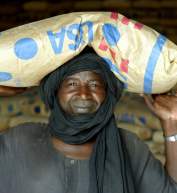
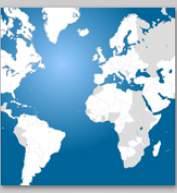

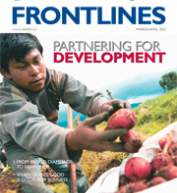
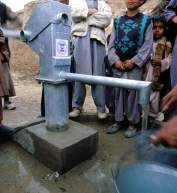
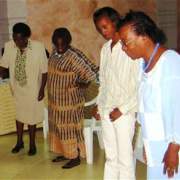
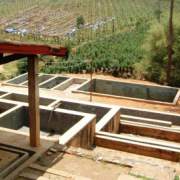
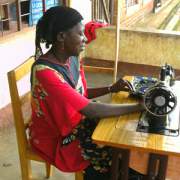
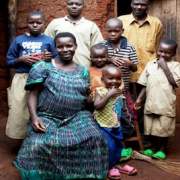
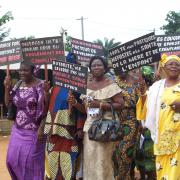
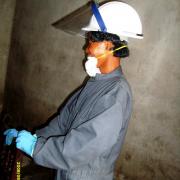
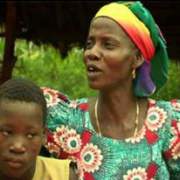
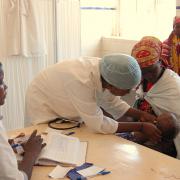
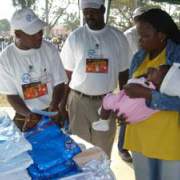
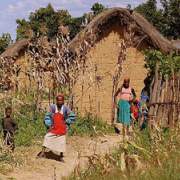
Comment
Make a general inquiry or suggest an improvement.